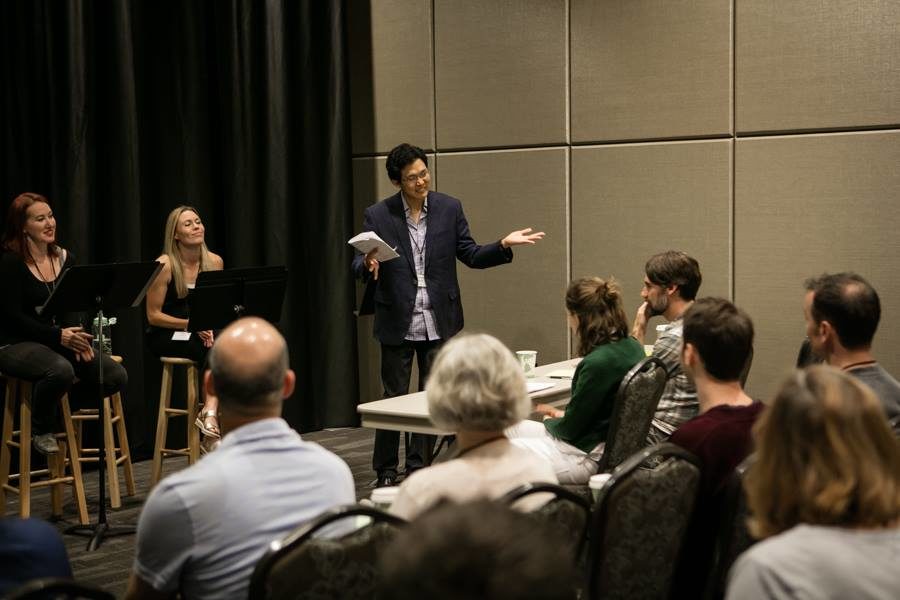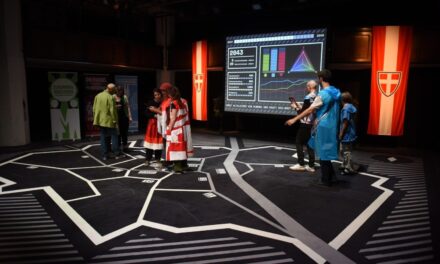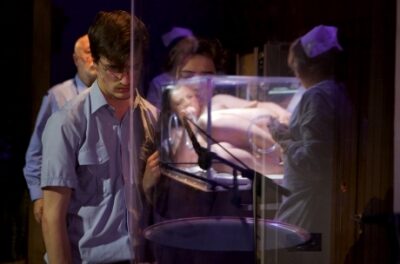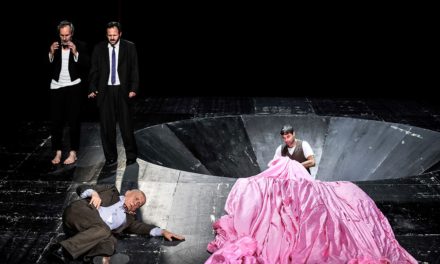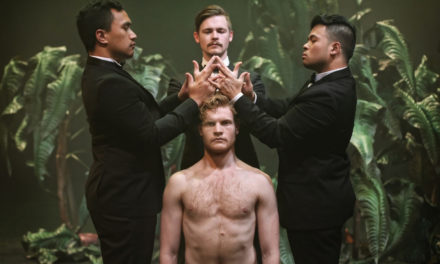Walter Byongsok Chon is an assistant professor of dramaturgy and theatre studies at Ithaca College. He served as dramaturg at the Yale Repertory Theatre, Yale School of Drama, the Eugene O’Neill Theater Center, the Great Plains Theater Conference, and the New York Musical Festival. This interview was conducted as part of the LMDA Weekly 5 and was published on LMDA’s Facebook page on May 30, 2017.
1) Who are you?
I am Walter Byongsok Chon, a dramaturg, scholar, educator, translator, critic, and performer, originally from South Korea.
2) Where do you work?
I am an Assistant Professor of Dramaturgy and Theatre Studies at Ithaca College in New York. I joined the faculty last year and am responsible for developing the dramaturgy classes and program as a bridge between the liberal arts program in Theatre Studies and the professional conservatory in Performance, Musical Theatre, Design, Theatrical Production Arts, and Theatre Arts Management degrees.
3) What is your favorite part of working as a dramaturg?
I enjoy being part of the creative, collaborative process, learning about new topics, classic and new artists, new voices, and new artistic practices. I also enjoy being the bridge between the text and the creative team, and between the production and the community. I particularly appreciate the synergy that occurs when a competent and committed group of artists collaborate. There is excitement in the process when inspiration sparks as a result of intense and harmonious collaboration. I appreciate learning about new topics through research. As production dramaturg for Danai Gurira’s Eclipsed at the Yale Repertory Theatre (2009), I became very familiar with the status of the Liberian women during the Liberian Civil War and came to appreciate their roles in the country’s history and what we could do to help women like them. Seeing how my research strengthens the production and how program notes, lobby displays, and discussion with the audience enriches the community is one of the most rewarding parts of being a dramaturg.
Being an educator of dramaturgy at a college level is another rewarding aspect of being a dramaturg. I love mentoring younger artists interested in dramaturgy and operating in a thriving theatre program with many levels of activity. Being responsible for teaching many talented, intelligent students has not only enhanced my professional development but also deepened my appreciation of the discipline required to become a competent dramaturg. Likewise, I learned a lot from the faculty development programs for teaching excellence as well.
What is your least favourite?
The contribution of the dramaturg needs to be more properly recognized, and it is dramaturgs who need to make this happen. Only a part of what the dramaturg does is seen to the public – program notes, lobby display – while the bulk of the work in the rehearsal room or with the playwright is only experienced and appreciated by the creative team. This is probably why there is no category for dramaturgy at the Tony Award at present. When dramaturgs more actively present their works in public forums and publish their works, I believe dramaturgy will obtain broader acknowledgement.
4) When did you first realize that you were “dramaturging,” or when did you first start working as a “dramaturg”?
My path to dramaturgy occurred as a confluence of various other theatrical disciplines. I have always had a love of performance and the stage for as long as I can remember, and performed as an actor in school or as a member of the high school and university chorus. “Dramaturging” started as I began to develop a critical perspective toward performance and started asking questions, such as “What was my experience like going through the journey of the story?,” “Why did this story suddenly take a turn toward the sentimental?” or “What does this song accomplish in the whole repertoire of the program?” I could address some of the questions as a musical director of my high school alumni chorus. Studying English literature in college also helped me gain more depth and breadth in the understanding of text and performance. When I started my serious pursuit of theatre as a scholar in the MA program at Washington University in St. Louis, I enjoyed applying my critical perspective to the reading and analyzing of performances. In the process, I became interested in applying my scholarly perspective to the creation of performance, which led me to pursue an M.F.A. degree in the Dramaturgy and Dramatic Criticism Department at Yale School of Drama. With a more in-depth training in dramaturgy, I engaged more deeply in various dramaturgical practices, including production dramaturgy, new play development, musical dramaturgy, adaptation, translation, site-specific theatre, devised theatre, theatre criticism, and dramaturgy scholarship, both in the US and internationally.
5) What theatre tome on your shelf couldn’t you live without?
Elinor Fuchs,“EF’s Visit to a Small Planet: Some Questions to Ask a Play.”
Elinor Fuchs, Death of a Character
Magda Romanska, editor, The Routledge Companion to Dramaturgy
Aristotle, Poetics
Danai Gurira, Eclipsed
Alexandre Dumas pere, The Tower of Nesle
Shakespeare, Hamlet
Friedrich Schlegel, Lucinde and the Fragments
Jean Genet, The Balcony
Ludwig Tieck, Puss-in-Boots
Zeami Motokiyo, The Book of Transmission of the Flower
This post was written by the author in their personal capacity.The opinions expressed in this article are the author’s own and do not reflect the view of The Theatre Times, their staff or collaborators.
This post was written by Walter Byongsok Chon.
The views expressed here belong to the author and do not necessarily reflect our views and opinions.

